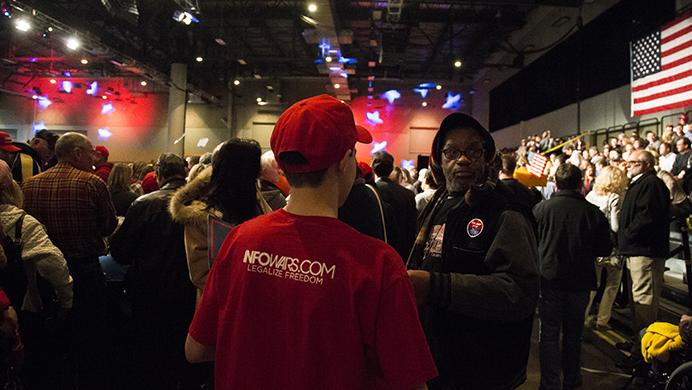When President Trump visited Cedar Rapids a few weeks ago, one attendee was quoted in The Daily Iowan as saying, in response to protesters present, “I guess it’s their right to protest. But they ought to get themselves educated so they know what’s really going on.” This remark has stuck in my head, probably because this is precisely what I have spent the last six months trying to do. Armed with a library card, Internet access, and whatever free time I can muster, I have tried to understand how we got a President Trump.
But there’s another reason: the epistemic privilege this particular Trump supporter implied he had. Epistemic privilege just means “I know something that you don’t know,” or perhaps, “I have access to knowledge that you don’t.” This is not exclusive to Trump supporters. Shortly after the election, I was told by a zealous left-winger I was “unaware of how fascism works.” Perhaps I am, but forgive me if it seems that there is something a bit stranger and more complicated going on.
Nevertheless, after wading through piles of op-eds of everyone and their brother offering an interpretation of “the current moment,” it does start to feel as if it were all mere words. This is all to be expected and not necessarily derided. We learn best by making mistakes, and certainly, a lot of mistakes have been made. But anyone who offers a master narrative of “what’s really going on” is surely peddling a species of conspiracy theory.
Trump’s election exploded us out of our comfort zones, both politically and culturally. The “us” I refer to here is the middle class, anyone privileged enough to attend college and be reading this. Consequently, we are disoriented, and in this disorientated state, we wade through the miasma of the news trying to understand our government and its various dysfunctions.
It is important to remember that it is not what you think, but how you think that matters. And the most important component of rational thought is the ability to revise your beliefs in the light of new evidence. This is the self-correcting mechanism that is at the very heart of the success of scientific inquiry and collaboration. But contained in the principle of belief revision is the idea of evidence. What constitutes appropriate evidence is a tricky question. While we could have a philosophical discussion about this for hours, it is helpful, in the context of “the news” and politics in general, we think about two things: the reputability and medium of the information.
In my experience, cable news is the equivalent of comfort food. Cable news is in the business of spin and entertainment rather than the dissemination of information that people might find useful. Unfortunately, many have moved from cable news to Internet news, such as Breitbart and the Young Turks, which may be even worse: the equivalent of cotton candy and funnel cake. To continue the metaphor, I regard print journalism, really, as the all-important fiber of political food.









